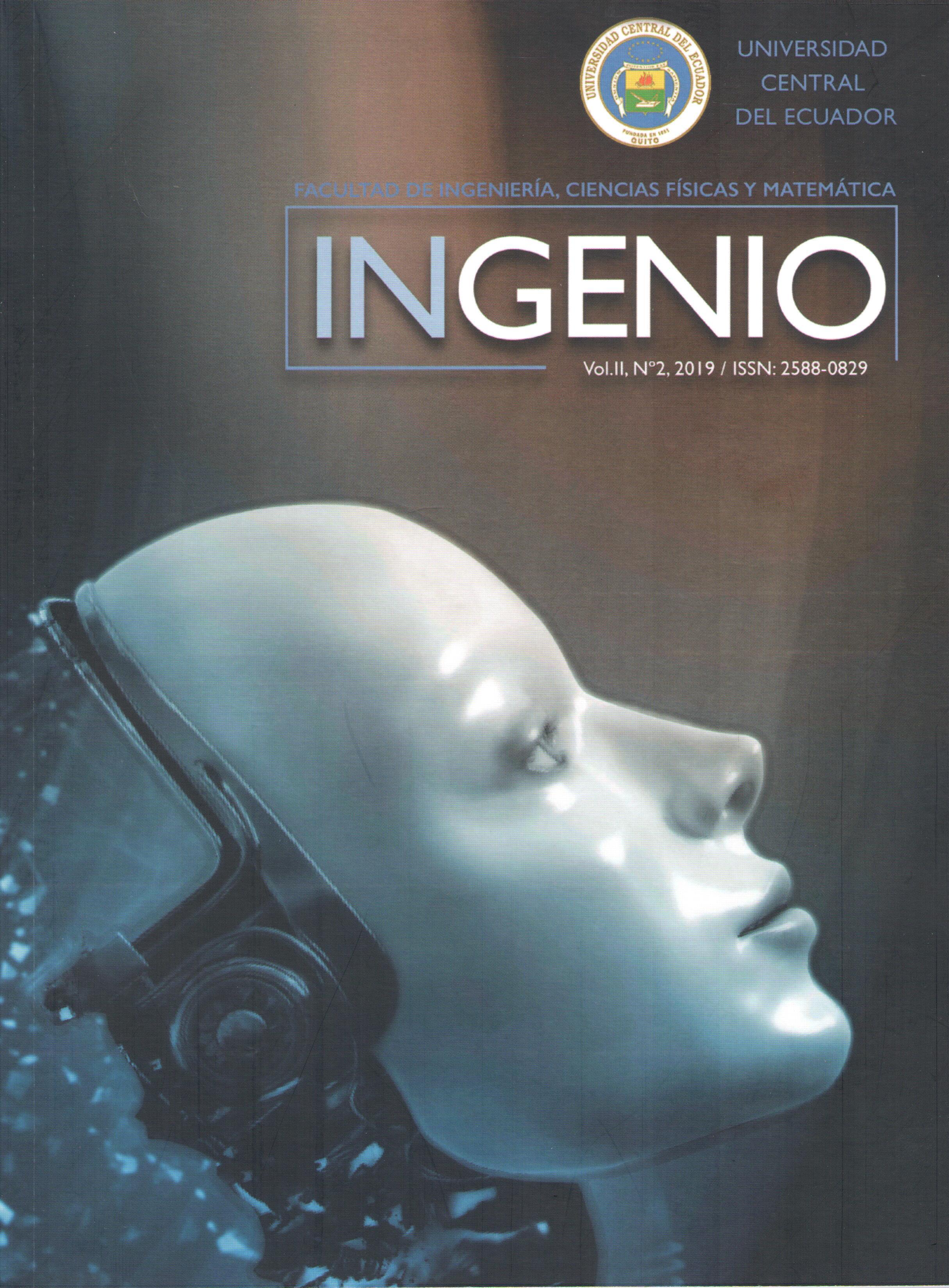Design of a Rainwater Harvesting System under Water Efficiency criteria in Buildings. Case study: Classroom Building and Hydraulics Laboratory of the Faculty of Engineering, Physical Sciences and Mathematics of the Central University
Main Article Content
Abstract
Water is one of the indispensable natural resources for the development of life. Unfortunately, the condition of renewable resource is very questioned. Ecuador is one of the countries in South America with the largest number of shallow and underground freshwater sources considering its continental area. However, there are influential factors that affect the availability of fresh water as a natural resource and that put the volume of these reserves at risk. The exponential growth of populations, the inclement climate change, the lack of laws and control mechanisms for the responsible use of drinking water and especially, the lack of culture on the application of responsible practices for the use of potable water in buildings, causes this resource to be exhausted quickly. The statistical figures indicate alarming data of Ecuador with respect to the countries of the region, since it is the largest consumer of drinking water with endowments exceeding 237 (liters/inhabitant.day) This reality makes it essential to reduce drinking water consumption in buildings to improve their water efficiency and turn them into self-sustaining projects without affecting the user's sense of comfort. The main objective of this work is to present the results obtained on the analysis of water efficiency in university buildings in Quito through international calculation methodologies such as the one suggested by the Portuguese Association for Quality in Building Services Installations (ANQIP). It is concluded that the installation of a rainwater harvesting system will considerably reduce the consumption of drinking water in a building with low hydraulic performance. The present study is given as a subject of Master's research at the Polytechnic Institute of Leiria and the Central University of Ecuador.
Downloads
Metrics
Article Details

This work is licensed under a Creative Commons Attribution-NonCommercial-NoDerivatives 4.0 International License.
References
United Nations Educational, Scientific and Cultural Organization (UNESCO). (2015). Water for a Sustainable World - The United Nations World Water Development Report 2015. Paris. Obtenido de: http://unesdoc.unesco.org/images/0023/002318/231823E .pdf
Ortiz J. Acceso y consumo de agua potable para todos. El Universo. 2018/20/6. Accessed 20 June 2018. Available from: https://www.eluniverso.com/opinion/2018/06/20/nota /6819557/acceso-consumo-agua-potable-todos
Food and Agriculture Organization of the United Nations - FAO. (2002). Crops and Drops making the best use of water for agriculture. Rome.
Comisión Económica para América Latina y el Caribe - CEPAL. (2012). Diagnóstico de la Estadística del Agua en Ecuador. Obtenido de: http://aplicaciones.senagua. gob.ec/servicios/descargas/archivos/download/Diagnostico%20de%20las%20Estadisticas%20del%20Agua%20Producto%20IIIc%202012-2.pdf
Norma Ecuatoriana de la Construcción. (2011). NORMA HIDROSANITARIA NHE - NEC 11. Quito. Obtenido de: https://inmobiliariadja.files.wordpress.com /2016 /09/nec2011-cap-16-norma-hidrosanitaria-nhe-agua-021412.pdf
Silva-Afonso, A. & Pimentel-Rodrigues, C. (2011). The importance of water efficiency in buildings in Mediterranean countries. The Portuguese experience. International Journal Of Systems Applications, Engineering & Development, 5(1), 17–24.
Innoquest Inc. (2018). Innoquest Inc. Obtenido de:
https://innoquestinc.com/product/spoton-irrigation-flow-meter
Secretaría Nacional del Agua - SENAGUA. (2011). ESTADO SITUACIONAL DEL ECUADOR EN CUANTO AL MANEJO DE LOS RECURSOS HÍDRICOS. Quito. Obtenido de: https://www.cepal.org/deype/noticias/noticias/1/ 44071/ SENAGUA_oferta-demanda.pdf
Instituto Nacional de Meteorología e Hidrología. (2018). INAMHI. Obtenido de: http://www.serviciometeorologico.gob.ec/red-de-estaciones-meteorologicas/
Associaçao Nacional para a Qualidade nas Instalaçoes Prediais - ANQIP. (2011). ANQIP. Obtenido de: http://www.anqip.pt/images/stories/Folheto_ANQIP_ AUDITAQUA_3.pdf





